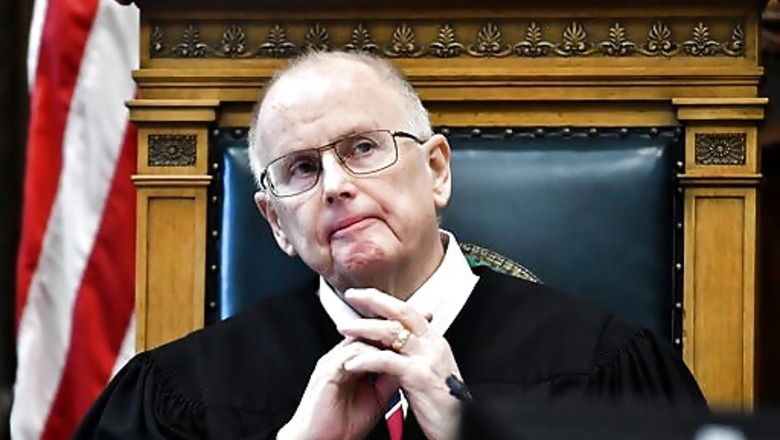
views
CHICAGO: As jurors in the murder trial of Kyle Rittenhouse listened to opening statements in a Wisconsin courtroom Tuesday, attorneys in south Georgia questioned potential jurors for a third week in the trial of three men charged in Ahmaud Arbery?s slaying.
It took the judge and attorneys in Wisconsin just one day to choose the panel of 20 12 jurors and eight alternates for Rittenhouses trial, but legal experts say the speedy process doesnt mean the jurors arent capable of delivering a fair verdict. The 18-year-old is charged with shooting three men during a protest in Kenosha, killing two of them.
But some worry that comparisons to the lengthy jury selection in other high-profile homicide cases, including the two weeks spent seating a jury in the trial of former Minneapolis police officer Derek Chauvin, could undercut the Kenosha panels credibility.
Judges have enormous discretion over the process of jury selection, resulting in different approaches across states, counties or even in neighboring courtrooms.
A judge decides whether to use a prescreening survey, whether attorneys can ask questions or provide prepared queries to the judge, how long jurors can be questioned and whether anyone can be questioned individually.
The judge plays the music and youve got to dance to whatever they play, said Phil Turner, a former federal prosecutor and attorney in Chicago. The lawyers have to deal with it, but they would certainly always like to ask more questions then fewer.
In a 2007 survey conducted by the National Center for State Courts, Wisconsin respondents reported a median of 90 minutes spent on jury selection in felony cases, compared to two hours nationally. States on the higher end of the range included New Jersey with 4.5 hours, New York with 5 hours and Connecticut with 10 hours.
Paula Hannaford-Agor, director of the organization?s Center for Jury Studies, said the responses demonstrate the many approaches used for jury selection.
Even attorneys familiar with the judge handling Rittenhouses case expressed surprise this week at the lone day spent on jury selection in a case that became a political flashpoint last summer.
Judge Bruce Schroeder in September rejected both sides? request to send questionnaires to potential jurors to probe biases as they prepared for the trial. Schroeder told the attorneys that he was afraid people would not fill them out and would wind up discussing the case even more with family and friends ahead of jury selection.
That may trigger even more conversations about the case, with consequent opinion formation, Schroeder said.
Ray DallOsto, a former public defender and attorney in Milwaukee, said he would anticipate jury selection taking a day or two in a murder or homicide case. He was still surprised by the speedy selection in Rittenhouses case, due to the publicity it has received.
Having tried cases and appeared before this judge, I can tell you he doesn?t do a casual 4- or 5-hour work day, Dall?Osto said. You put in a real long, hard day and you get the work done.
But the streamlined procedure Schroeder used to seat a jury could generate skepticism among people watching, particularly in Kenosha, said Laurie Levenson, a former federal prosecutor and a professor at Loyola Law School in Los Angeles.
In a case of this complexity, taking a little extra time to make sure that the jurors appreciate the importance of remaining fair, that the lawyers feel satisfied and that the public sees the jurors as legitimate there?s a lot of upside, she said.
Legal experts said judges? discretion during jury selection rarely leads to overturned verdicts because appeals courts tend to defer to a trial court?s decisions.
A federal appeals court in 2020 did throw out convicted Boston Marathon bomber Dzhokhar Tsarnaev?s death penalty sentence, in part because the panel found the trial court judge had not questioned jurors enough about what they had seen or heard about the case.
But U.S. Supreme Court justices last month sounded prepared to reinstate the death penalty sentence.
Turner, the former Chicago prosecutor, said the apparent reluctance to challenge judges? decisions during jury selection makes the process all the more important.
It should take a long time, he said.
___
Find APs full coverage on the trial of Kyle Rittenhouse at: https://apnews.com/hub/kyle-rittenhouseDisclaimer: This post has been auto-published from an agency feed without any modifications to the text and has not been reviewed by an editor
Read all the Latest News , Breaking News and IPL 2022 Live Updates here.

















Comments
0 comment